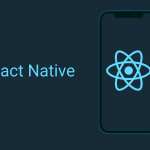DevOps has transformed the software development landscape by bridging the gap between development and operations. In 2025, this transformation continues to accelerate as automation and artificial intelligence redefine how teams build, test, deploy, and monitor applications. The integration of AI and automation into pipelines is not just a trend but a necessity for achieving efficiency, speed, and reliability in modern software delivery.
Table of Contents
The Shift from Traditional DevOps to Intelligent DevOps
Traditional DevOps focused on collaboration, automation of manual processes, and continuous integration and delivery (CI/CD). However, as systems grow more complex, these practices alone are no longer sufficient. Intelligent DevOps, powered by AI and machine learning, brings predictive analytics, automated decision-making, and self-healing systems into the picture. This evolution enables teams to identify potential failures before they occur, optimize resource usage, and reduce human error across development cycles.
Automation
Automation has always been a core principle of it, but its role has expanded significantly. Today, almost every phase of the DevOps lifecycle from code integration to deployment and monitoring can be automated. Tools now support infrastructure as code (IaC), automated testing, and container orchestration. Continuous delivery pipelines can automatically deploy updates based on real-time data and user feedback. This level of automation frees developers from repetitive tasks, allowing them to focus on innovation and problem-solving.
The Role of AI
Artificial intelligence brings intelligence and foresight into DevOps. By analyzing vast amounts of data from logs, performance metrics, and user behavior, AI can predict issues, optimize system performance, and even recommend solutions. AI-driven analytics tools detect anomalies and alert teams before they escalate into outages. In some cases, AI can even trigger automatic rollbacks or adjust system configurations to maintain stability without human intervention.
Predictive Maintenance and Self-Healing Systems
One of the most significant advancements in DevOps is the rise of predictive maintenance. Instead of reacting to problems after they occur, AI-powered systems can analyze patterns and forecast potential issues such as memory leaks, downtime risks, or performance bottlenecks. Similarly, self-healing systems can automatically identify and correct issues in real time. This minimizes downtime, enhances reliability, and ensures a smoother user experience.
Enhanced Collaboration through AI-Driven Insights
DevOps thrives on collaboration between developers, testers, and operations teams. AI improves this collaboration by providing data-driven insights that support decision-making. Predictive analytics tools can identify areas of inefficiency and suggest improvements in workflow or infrastructure. This data-centric approach allows teams to make faster, smarter decisions and maintain continuous alignment across departments.
Security and Compliance Automation
Security has become an integral part of it, giving rise to DevSecOps where security is integrated into every phase of the development lifecycle. Automation and AI play a crucial role in detecting vulnerabilities early, performing compliance checks, and monitoring code for security flaws. Machine learning models can analyze network behavior to detect anomalies that might indicate security threats, ensuring proactive protection.
The Future of DevOps Jobs
As automation and AI continue to evolve, the roles within it are also changing. Professionals now need to understand not only traditional development and operations principles but also data analytics, machine learning, and AI-driven tools. The most successful DevOps engineers are those who can integrate automation frameworks with intelligent systems and continuously adapt to emerging technologies.
Conclusion
The fusion of automation and AI is shaping the next phase of DevOps evolution. Intelligent DevOps enables faster delivery, greater efficiency, and more reliable applications. With predictive insights, self-healing infrastructure, and automated security, organizations can achieve unprecedented levels of performance and agility. For developers and engineers, embracing this transformation is no longer optional it is the key to staying relevant and competitive in the ever-evolving world of technology.
Also Check The Evolution of Cloud Computing – Ultimate Guide 2025







1 thought on “How DevOps Is Evolving – Comprehensive Guide – 2025”